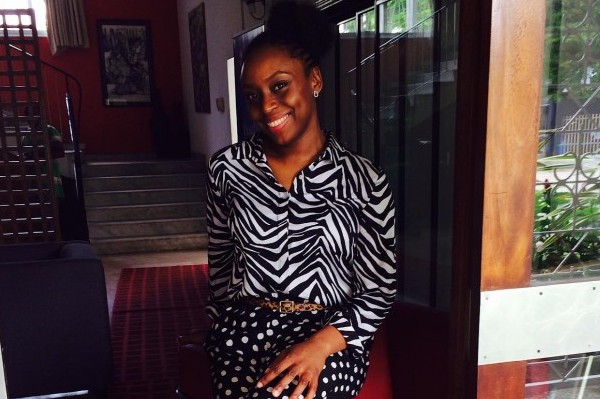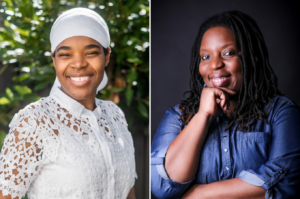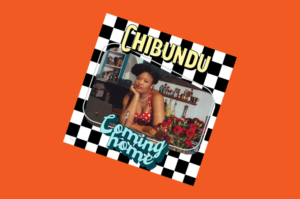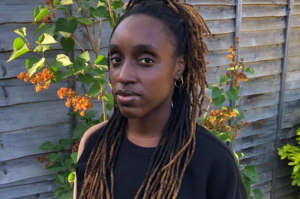Chimamanda Ngozi Adichie’s Half of a Yellow Sun marked its tenth anniversary in 2016. The novel was published in 2006 and soon became a critical and commercial success, winning her the 2007 Orange Broadband Prize.
In 2015, Half of a Yellow Sun ranked tenth in BBC’s list of 21st Century classics and was named the Baileys Women’s Prize “Best of the Best” for the 2006-15 decade.
To mark the milestone, The Muse—University of Nigeria, Nsukka’s official literary journal—dedicated its Issue No 44 to exploring the novel’s impact. The journal was founded in 1963 and is reputed to be the oldest student journal in West Africa. This particular issue features an interview with Adichie. In the course of the interview, conducted by Arinze Ifeakandu, who was editor at the time, Adichie talks about her writing and reading experiences, her process and philosophy, what emotional truth is, and the pain of fiction.
Below is the full interview.
_____________________________________________
Ifeakandu: You said in We Should all be Feminists that you are angry, that the way gender is constructed, the sheer injustice of it all, makes you angry. Is there a sense in which this anger serves as fuel for your writing?
Adichie: Yes, I think so. Dissatisfaction is both a scourge and a necessity for a writer. I am dissatisfied—and often angry—about many of the subjects I write about. I should also say that part of the reason I brought that up in my talk is because ‘‘anger’’ itself is a gendered idea. We judge anger in a woman very differently from anger in a man. Women are generally not supposed to be angry. Anger is considered unattractive in women but can often be seen as a sign of strength and power in men. And so, for me, it is important to reclaim anger as a fully valid and human emotion for women.
Ifeakandu: There is a preponderance of strong female characters in your novels; characters who own their lives and sexualities in a manner rarely seen in fiction. You’ve also talked about your admiration for women who work hard to support their families. Growing up, did you feel any kind of loneliness, or rage, anything at all, not finding these women in the stories you read?
Adichie: I missed them. But they were not entirely absent. It was rather that they were not central to the stories. Things Fall Apart, for example, which on the surface is not in the least bit about strong femaleness, still has these slim slices of strong female characters, and I clung to them, and remembered them. The priestess, the woman who was her husband’s equal, even Okonkwo’s favourite child Ezimma.
Ifeakandu: Marlon James wrote somewhere that characters arise out of our need for them. How true is this for you? Do you find that you create certain characters out of a kind of longing?
Adichie: Yes. Absolutely. Aunty Ifeoma in Purple Hibiscus is very much a product of a certain kind of longing. So is Obinze in Americanah. And Kainene, who I deeply admire, in Half of a Yellow Sun.
Ifeakandu: Your works are often praised for possessing emotional truth. You also use emotional truth in describing the kind of stories you love to read. What really is emotional truth, and is it something that can be taught in writing classes?
Adichie: I’m not sure. There is a certain kind of radical honesty that is required to write true fiction, and a young writer can attend many classes and still not have that. It can perhaps be coaxed out of a young writer, but in the end it is something that comes with an internal and very private decision on the part of the writer.
Ifeakandu: Can emotionally true fiction be created from a subject matter, or idea, a writer does not care about?
Adichie: No. Quite simply, you have to care. Deeply. Otherwise, it is all aridness.
Ifeakandu: There are times when, in talking about your books, my friends and I find ourselves talking about characters on whom we crushed. One recently said that, “Her characters feel like next door neighbours.” You have said sometimes that you are a keen listener to conversations and a watcher of people. Does this depth of character in your works come from that?
Adichie: I think so. I have always been a watcher of people. I have also always liked people. I mean that I find people interesting, I find small things interesting, I find flawed humanness interesting. There are writers who do not fundamentally like people, and they produce beautiful writing and an astute reader can sense the underlying misanthropy in the way the characters are written.
Ifeakandu: I think it was in an essay, or an interview that you talked about a girl in Abba who tripped and, instead of maybe swearing in Igbo, said, “Fuck! Fuck!” You had said how odd it was, and how if used in fiction, that action would have been considered implausible. Is this something in realist fiction that you find annoying—this obsession with plausibility?
Adichie: Yes. Because it is limiting and odd. Creative people make notes of interesting things, and these things are often unexpected and not the most mundane, and yet when we judge stories on ‘‘plausibility,’’ we use mundane and expected references. People also base plausibility on their own very limited experiences. I have often heard people say—nobody in Nigeria would ever do or say X. And I find that very boring.
Ifeakandu: Do you worry about plausibility when writing nonfiction?
Adichie: No. Because nonfiction comes with that label of nonfiction, that idea that ‘‘it really happened,’’ the reader is not allowed any room to question.
Ifeakandu: You have said in the past that you keep notes of things that interest you: an overheard conversation, the posture of a man, etc. How do you decide eventually what goes into a story, and what becomes a nonfiction piece?
Adichie: I truly don’t know. It is intuitive.
Ifeakandu: Are there experiences in life that are fiction-worthy and others that are not?
Adichie: I think every experience is fiction-worthy. In fiction, we lie to tell the truth, and there is truth in every human experience.
Ifeakandu: I am reminded of Ranyinudo’s clash with Ifemelu over her use of Ranyinudo’s experience in a blog post, and I’m wondering if there is a limit to how much a writer borrows from friends, family, lovers, even strangers?
Adichie: What matters most is protecting the people who need to be protected. The clash was not so much about her using it as it was about how she used it, in a way that was very obvious and exploitative. I borrow endlessly from people’s lives but I also change things around, twist and re-shape. A friend recently told me—I see you made me a woman in your novel. Which was funny. And partly true. A female character was loosely based on him—because she used an expression that he used—but was also in many ways different from him. I do have to say that I regret once using, in an essay, details of people I know in a way that was obvious, and I apologized afterwards and still feel very bad about it.
Ifeakandu: Have there been moments when in writing a story or essay you stopped because you felt you didn’t have the “right,” that it wasn’t your story to tell?
Adichie: No.
Ifeakandu: There is a strong sense of place in your novels. One feels it particularly in Purple Hibiscus where you write about Nsukka with such deep nostalgia. Did your being away from Nigeria at the moment of writing that novel sharpen your vision of Nsukka? Do you find that distance sharpens the senses in writing about place?
Adichie: Absolutely. I had been gone a few years and I missed home so much. And so the novel became this paean of sorts to home, and it was nostalgic and romanticized. My childhood was very happy, and the Nsukka of my childhood—which is now an Nsukka of my imagination—is a place I wanted very much to immortalize. I get this silly kick of excitement each time somebody tells me they want to visit Nsukka because of my fiction. I’ve heard that from so many different places all over the world.
Ifeakandu: There is so much pain in literary fiction. I think it was Ian McEwan who said that it is difficult to sustain happiness in a novel. Something bad has to happen. Do you think that it is possible to write a novel, or short story, that is entirely happy? What do you think is in the nature of fiction that accommodates so much pain?
Adichie: I’ve been thinking about this lately. Some literary stories have become parodies of themselves in their insistent disavowing of joy. I don’t know about ‘‘entirely happy’’—is life entirely happy? How do we gauge joy if there is no sadness?—but I think happiness is possible in literary fiction. McEwan is brilliant and even he has let in a bit of joy in his later novels.
Ifeakandu: You have said sometimes that you do not rush off to buy a book that people hail as experimental. Yet there seems to be something “experimental” about every new work of art, something “new.” What in your experience do people mean when they use “experimental” in describing a work, and what is it about these “experimental” works that does not excite you?
Adichie: Bernard Malamud once said that people had begun to talk of ‘‘the new fiction’’ and to hail it as the only valid way of writing, and that they reminded him of people who could not draw human beings, and so began to draw chairs, and then insisted that chairs were the only worthwhile subjects. I do agree that there is something new about each good piece of literature, I also think that all stories have been told but we bring a new humanness to each story we re-tell. ‘‘Experimental,’’ as used in contemporary criticism, often means the kind of fiction that is ‘‘about ideas,’’ or fiction that is gimmicky (written in one long sentence, or written to be deliberately confusing, that sort of thing), or fiction that eschews character and place and emotion and psychology—which are all the things I love about fiction. It can also often mean style over substance, and because as a reader I want a certain kind of depth and meaning, these stories just do not appeal to me. As a writer, I also know that old-fashioned stories are the most difficult to do well.
Ifeakandu: In your work, especially in your novels, we find a balance of most of the aspects of fiction—character, plot, conflict, language, etc. In reworking your novels, what aspect do you often find yourself particularly paying attention to? Is it the same for your short stories?
Adichie: Short stories occupy a much more abbreviated space, and so I pay attention to everything. I am also more ruthless in self-editing. In novels, I am more willing to let an unloved sentence stay.
Ifeakandu: You are very particular about re-drafting. You said that in collecting The Thing Around Your Neck you found yourself almost rewriting most of the stories, even though they had been previously published in reputable magazines. I’ll like to ask if there is any such thing as re-working, or work-shopping, a story to death.
Adichie: Yes. Probably why it is the book I don’t love as I love my others, ha! Sometimes one has to let go. I do think re-working to death comes from either the intuitive knowledge that the story is not good enough, or just the general self-doubt that comes with the creative process. The difficulty is in knowing how to make a distinction between the two.
Ifeakandu: In your Acknowledgements, you always thank your draft-readers. Do they play the same role now as they did when you wrote Purple Hibiscus? Also, do they function differently from editors?
Adichie: Yes, nothing has changed. My draft readers are invaluable. They are mostly people who wish me well and who tell me the truth. Both qualities I find essential. And they are very different and they are not all terribly ‘‘literary’’ people, just people who like to read. A real reader is much more useful than a writer, I have found.
Ifeakandu: The composer Eric Whitacre once talked about how, in composing a song called “Water Night,” one of his most widely-listened-to songs, he just sat at a spot and wrote all of it in one sitting, hardly doing any reworking. He says that it was as though the song were given to him. He describes it as a magical experience that does not happen often. Have you had this kind of experience in writing a story?
Adichie: Yes, with an early short story. I also had it with the title “Half of a Yellow Sun.” I was sitting at my sister Ijeoma’s dining table in Connecticut, and the title came to me and it felt completely right. And it was a magical, beautiful moment that I will never forget.
Ifeakandu: This is the tenth year of Half of a Yellow Sun. It has been translated into over thirty languages and has won prestigious awards. But more importantly, it kindled a renewed conversation on one of the darkest parts of our history. We’ll like to say thank you, and congratulations.
Adichie: Thank you. I really appreciate it.
***
This interview was originally published in print in 2016, in The Muse, a students’ journal of creative and critical writing in the Department of English and Literary Studies in the University of Nigeria, Nsukka. It was published with the title: ‘‘You Have To Care: An Interview with Chimamanda Ngozi Adichie.’’
We will be uploading the full journal, The Muse No 44, soon.










The 2021 Literary Arts Festival, University of Nigeria Nsukka (UNN) - THE MUSE JOURNAL May 30, 2021 18:34
[…] the years, The Muse has published interviews of notable Nigerian writers like Chimamanda Ngozi Adichie, Chika Unigwe, Unoma Azuah, Eghosa Imasuen, Chigozie Obioma, E.C. Osondu , amongst […]